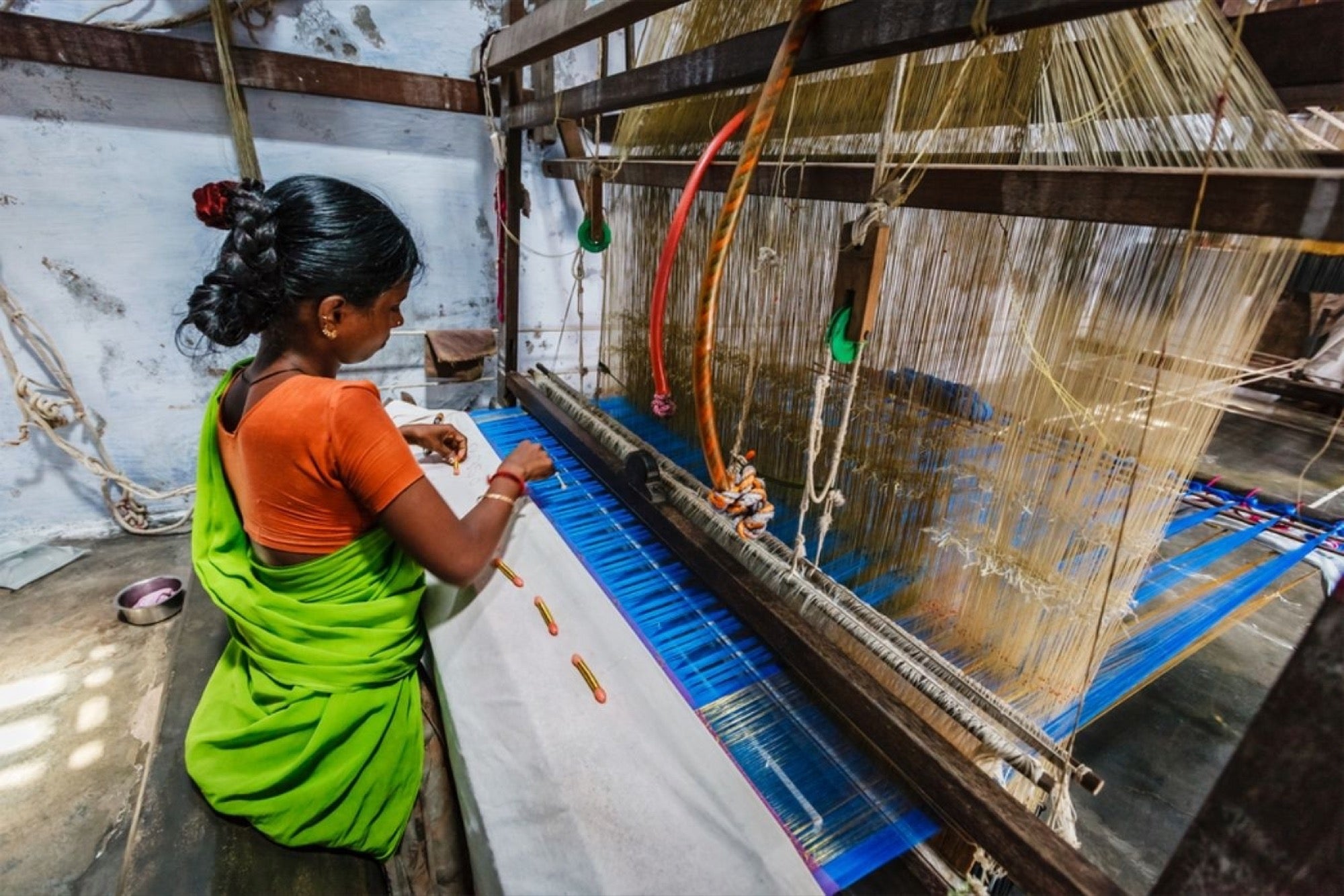Weaving In Change How a former management consultant is making a difference in the lives of Bengal handloom artisans in Shantipur
Opinions expressed by Entrepreneur contributors are their own.
You're reading Entrepreneur India, an international franchise of Entrepreneur Media.

Like innumerable Indian women, Madhumita Pyne's love for saris, especially Bengal handloom, is nothing different. What is different is how she addressed the plight of artisans and took it upon herself to help revive and encourage the weaves and textiles that are now at the risk of fading away. "It's an art that I have been associated with since childhood, having seen elders, family members and friends wearing Bengal handloom on all occasions," she says, adding how there's no missing how extremely ethnic and classy Bengal handloom dhotis and saris look.
And yet, it's a dying art in West Bengal today. Skilled weavers aren't paid enough for their work, and the newer generation justifiably wants to move to other professions. Leaving their rural backgrounds, these weavers and their families are gradually shifting to bigger cities such as Kolkata and Asansol. Uneducated and in a place where their skill has no meaning, these people choose to work as daily labourers at construction sites! "It is all so sad and so shocking. I wanted to do my bit not only for the art, but the artisans as well," says Pyne, who is based out of Kolkata.
Initial research pointed her towards the Nadia district, specifically in and around Shantipur, a small town that has produced some of the most intricate handloom weaves since ancient times. It is known for its jamdaani and cotton saris, as well as other feather-touch textiles that are woven painstakingly in the same way they were hundreds of years ago. With an initial investment of Rs 75 lakh from her personal savings, Pyne approached about 75 weavers in 2013, and collaborated with them on a collection of saris. Together, the group introduced brighter colors, new patterns and designs.
As if introducing new things to people who are set in their ways wasn't challenging enough, getting the weavers under one umbrella and having them deliver in a time-bound manner were issues, too. "We also had to ensure that the weavers received the correct payment for the work done. The head-weavers played an important role in ensuring all this," says Pyne.
Once the collection was in her hands, she approached online portals catering to handloom textiles. Her work experience with a global management consulting firm helped, too, as did her networking with friends and family abroad. The response to the collection left her pleasantly surprised. Not just that, there was demand for more, especially from the Indian community in the US and the UK.
Soon, she was able to bring more weavers into the fold, and she started her own venture called Loomiere. As many as 250 weavers of Shantipur are attached with the Loomiere brand, which retails mainly through NDTV's online shopping site, www.indianroots.com. "The response is encouraging and the way Loomiere is fast becoming a brand in itself, I am looking at retailing through retail avenues exclusively for our brand," says an excited Pyne.
The Shantipur weavers are a happy lot, too. With Pyne, they are paid anywhere between 35 to 40 per cent more for a sari, as compared to when they worked through middlemen. They are now experimenting more and more with designs and motifs to make the saris more contemporary and acceptable. Pyne keeps a keen eye on quality and deadlines, and is aggressively marketing Loomiere saris.
"Handloom is an art that requires serious and passionate handholding as the process is painstaking and needs expertise and patience," she says. For instance, a jamdaani sari may take up to a month or 45 days to produce. As a result, revenues and consequent recoveries may take longer. "Policymakers and governments – both state and Centre – can help by way of easy financing and providing support to families of such artisans by way of subsidized food, education and basic amenities for them and their families," she says.
At Shantipur, meanwhile, the lives of artisans are gradually changing, but it will take at least a couple of years for a more tangible effect. But then weaving beautiful patterns takes time; the weavers will agree.










